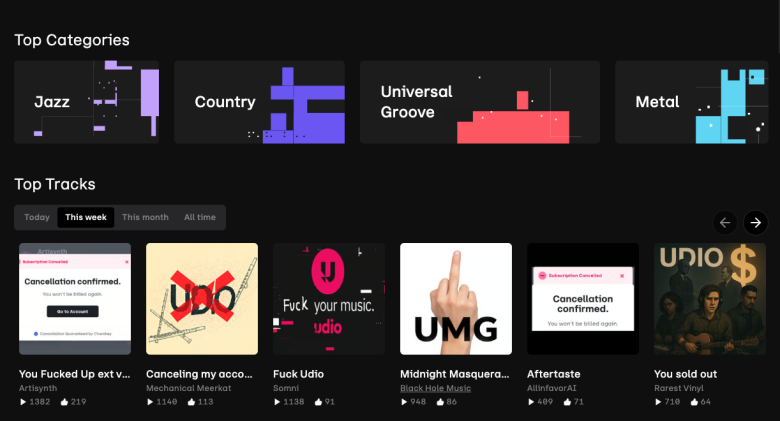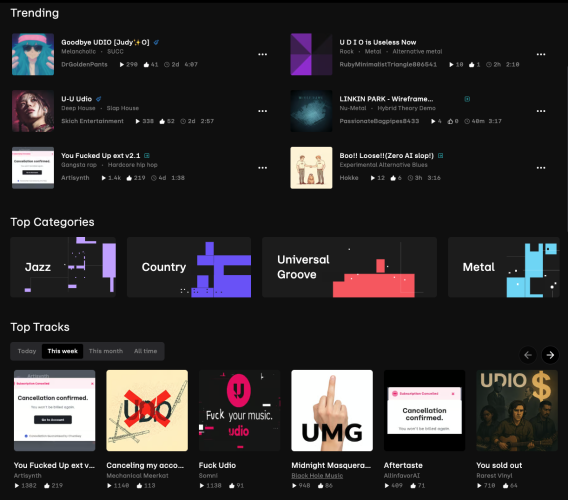
The world of AI-generated music is colliding with the realities of the traditional music industry. Udio is now at the center of that storm. After striking a licensing deal with Universal Music Group (UMG), the company abruptly blocked downloads of user-generated tracks. Consequently, the decision sparked outrage across its community and highlighted the tension between innovation in generative AI and the demands of established rights holders.
Udio Responds to Community Anger
Udio’s leadership quickly addressed the backlash in a post on its official subreddit. “Not going to mince words: we hate the fact we cannot offer downloads right now. We know the pain it causes to you, and we are sorry that we have had to do so,” the company wrote. Moreover, the firm explained that disabling downloads was necessary to build partnerships with artists and songwriters. As a result, Udio is positioning itself as a legitimate player in an evolving industry.

To ease frustrations, Udio negotiated with UMG to allow a temporary 48-hour window, beginning November 3, for users to download their existing songs. Although this concession offered some relief, many community members remained vocal in their criticism. In addition, some turned protest into art, creating songs that gained traction on Udio’s homepage algorithm. On the other hand, others expressed anger more bluntly, with one Reddit user accusing the company of “robbing” its community.
Legitimacy vs. Community Loyalty
This controversy underscores a painful truth: AI-music platforms cannot thrive without industry approval. However, securing that approval often comes at the expense of early adopters. Therefore, Udio is betting that aligning with rights holders and training on licensed catalogs will unlock broader opportunities. Furthermore, the company is wagering that legitimacy and scalability will outweigh short-term community discontent.
In the end, Udio’s situation reflects a broader debate about generative AI in music. Should innovation prioritize user freedom, or industry compliance? For now, Udio is walking a tightrope, trying to balance both sides. Ultimately, the next chapter will reveal whether its gamble pays off—or whether its community decides the cost of legitimacy is too high.








